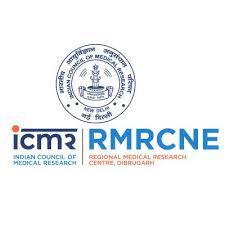Recent research has shed light on how the coronavirus might be causing brain-related symptoms, especially in those suffering from long Covid. Scientists have discovered that changes in the spike protein, a key part of the virus, could enhance its ability to infect the brain. This discovery could help explain symptoms like brain fog and might lead to better treatments for long Covid.
What Are Spike Proteins, and Why Are They Important in the Coronavirus?
The spike protein is a crucial part of the SARS-CoV-2 virus, which causes Covid-19. It acts like a guide, helping the virus find and enter human cells. Without the spike protein, the virus would struggle to infect our bodies.
As Dr. P Venkata Krishnan, Sr. Consultant, Internal Medicine, Artemis Hospitals explains, “Spike proteins are the protruding structures on the surface of the coronavirus that allow the virus to attach to and enter host cells. These proteins are critical to the virus’s ability to infect a host, as they bind to specific receptors on the cells, such as the ACE2 receptor in humans. Once attached, the virus can penetrate the cell membrane and replicate. The spike protein is also the primary target for vaccines and therapeutic antibodies because it plays a fundamental role in the virus’s infectiousness. Because of its key role, changes or mutations in the spike protein can significantly impact the virus’s transmissibility and immune evasion, making it crucial in the ongoing battle against COVID-19.”
How Do Changes in the Spike Protein Affect the Virus’s Ability to Infect the Brain?
In the study published in the journal Nature Microbiology, researchers from North-western University, UK, and the University of Illinois-Chicago, US, experimented with mice to understand how the coronavirus might be affecting the brain. Mice were chosen for this study because they are biologically similar to humans, making them a good model for research.
The researchers infected the mice with the coronavirus and closely observed how the virus spread within the body. They compared the spike proteins of viruses found in the brain to those in the lungs. Interestingly, they noticed that while the spike protein in the lungs remained similar to the original virus, the spike protein in the brain had undergone a change.
Most of the viruses in the brain had a deletion or mutation in the spike protein, particularly in the part that is critical for entering human cells. This mutation seemed to make the virus better at infecting brain cells.
Dr. Krishnan noted, “Changes or mutations in the spike protein can potentially enhance the virus’s ability to cross the blood-brain barrier (BBB), a protective layer that shields the brain from harmful substances in the bloodstream. When the spike protein mutates, it is likely to increase the virus’s ability to interact with cells in the brain or central nervous system (CNS). This can lead to the virus directly infecting brain tissue. Enhanced binding affinity for receptors found in the CNS could allow the virus to enter neurons or other brain cells, leading to neurological symptoms and potentially long-term damage. These mutations are said to play a role in the cognitive and neurological symptoms that are seen in some COVID-19 patients.”
How These Spike Protein Changes Might Lead to Long Covid?
Long Covid is a condition where symptoms of Covid-19 persist for months after the initial infection. These symptoms often include brain fog, memory problems, and difficulty concentrating. The exact cause of these symptoms has been a mystery, but this new research provides some clues.
The changes in the spike protein that were observed in the brain might explain why some people experience long-term neurological symptoms. The mutated spike protein seems to make the virus more effective at invading the brain and the central nervous system. This could mean that the virus lingers in the brain longer than in other parts of the body, leading to prolonged symptoms.
Dr. Krishnan suggests that “Changes in the spike protein can potentially alter the virus’s ability to affect different tissues, including the brain, heart, and lungs, contributing to the development of Long Covid. Long Covid refers to the persistence of symptoms for weeks or months after the initial infection has cleared. Spike protein mutations might make it easier for the virus to invade tissues and organs beyond the respiratory system, causing prolonged inflammation and immune responses. In some cases, the virus could remain hidden in these tissues, triggering recurring symptoms like fatigue, brain fog, and shortness of breath. Spike protein-induced immune dysregulation is also likely to result in chronic inflammation and autoimmunity, which are key contributors to Long Covid.”
What Symptoms You Should Watch Out for If You Are Concerned About Brain Infections Due to COVID-19?
According to Dr. Krishnan, “If someone is concerned about brain infections related to COVID-19, they should be vigilant for neurological symptoms. Common warning signs include headaches, dizziness, confusion, memory problems, and difficulty concentrating (often described as “brain fog”). Severe cases may present with seizures, difficulty with speech or movement, loss of taste or smell, and changes in personality or behaviour. Other concerning symptoms may include prolonged fatigue, weakness in limbs, and difficulty with coordination or balance. Anyone experiencing persistent or worsening neurological symptoms, especially after recovering from COVID-19, should seek medical attention as these could indicate potential brain involvement or post-viral neurological conditions associated with Long Covid.”
This research highlights the importance of the spike protein in how the coronavirus affects different parts of the body, particularly the brain. The discovery that changes in the spike protein could be linked to long Covid and its neurological symptoms is a significant step forward in understanding the disease. As scientists continue to study these findings, they hope to develop targeted treatments that can better address these persistent symptoms and help patients recover more fully.










